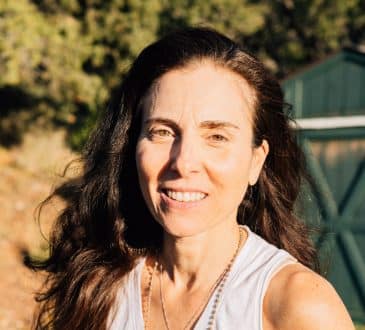Rick Inatome Explains How to Be Your Own Mentor

In this article, Rick Inatome discusses the importance of being a good self-mentor, and how getting to and staying “in the zone” is critical advice for oneself.
Navigating the path to success is rarely a solo exercise, as even the most remarkable individuals will point to the transformative power of mentorship as critical to their journey.
The path to success typically is riddled with obstacles, countless unknowns, and self-doubt. It is within this context that a good mentor can provide the wisdom, insight, and perspective that counters what otherwise may lead to personal and professional stagnation.
Mentors may come in different shapes, times, and places. They might be a favorite teacher, boss, or someone who has achieved a high level of success and expertise in the relevant field. Bill Gates, for instance, credits his accomplishments to surrounding himself with persons who simply knew more than he did.
I had the good fortune of knowing Jon Shirley, whom Gates recruited as one of Microsoft’s earliest presidents and chief operating officers. I also was asked by Bill Campbell, known as the “nerd whisperer” who was mentor to numerous senior Silicon Valley executives, to serve on Apple’s advisory board. Not everyone has the opportunity to secure such resources, but there are alternative pathways.
The Importance of Being a Self-Mentor
While traditional mentoring indisputably is high value when it comes to personal and professional growth, self-mentoring is important to the point of being indispensable. For persons who may not have access to traditional mentorship, due to factors such as limited networks, resources, or circumstances, self-mentoring is especially critical. Generally speaking, being one’s own mentor entails a commitment to self-leadership and habits that include:
- Self-awareness and self-reflection that help identify strengths, weaknesses, values, and improvement opportunities;
- Self-motivation and accountability that hold oneself objectively responsible for actions, progress, and failures;
- Goal setting and planning that generate a roadmap for success and help maintain focus;
- Proactively seeking feedback from friends, colleagues, or experts who may be accessible as alternatives to formal mentors;
- Embracing failure and growth that enables learning from mistakes, course corrections, and perseverance through challenges – thus maintaining a mindset of continuous improvement and resilience.
A Self-Mentor’s Best Advice
Perhaps the most valuable advice self-mentors can give themselves is how to manage through failure — and avoid the pitfalls that sometimes come with success. In sports, it is not uncommon for one loss to be the prelude to a losing streak. This dynamic is not necessarily or exclusively about physical incapacity. Often, it is the function of an unchecked internal dialogue of negativism that derails a balanced mindset and exacerbates the self-doubt from which 80% of the nation’s population already suffers. The same holds true with respect to failure in business and life in general.
In the face of failure, there is a common human tendency to beat up on ourselves, ruminate, obsess, and immerse ourselves in negative self-talk. This pattern may owe to a sense of unworthiness, fear of being judged, perfectionism, internalized beliefs of being flawed or not good enough, or lack of self-compassion that precludes extending the kindness we would give others. Whatever the cause, the result is disruption of the ability to be what the author W. Timothy Galway describes as “in the zone.”
The concept of “being in the zone” refers to a state of optimal performance and focus. It is a state of mind in which persons are fully immersed and engaged in their activity, thereby experiencing a sense of effortless concentration and elevated performance. In these moments, individuals feel a sense of flow whereby their skills and abilities mobilize effectively against the demands of their goals and challenges. Put simply, being in the zone is reflected by a deep sense of focus and being in the moment.
Getting into and Staying “in the Zone”
A good mentor may be in a position to highlight the importance of being and staying in the zone. Achieving that state and sustaining it, however, depends upon the capacity for self-mentoring. Toward this end, averting failure becoming a downward spiral necessitates shifting attention away from negative thoughts and focusing on the present moment and current task at hand. This process may require letting go of excessive control, paralysis by analysis, and overbaked self-judgment.
It may seem paradoxical, but how we react to success can be instructive for purposes of responding to failure in a way that allows for learning relevant lessons but does not derail the ability to be in or stay in the zone. Becoming caught up in the euphoria of success can be as risky as excessive reaction to failure. A sales team’s dwelling on a record year’s performance may yield a well-deserved high, for instance, but potentially sets up a disappointing next year if prolonged celebration becomes an incubator of complacency, distraction and lost focus. Whether the story is one of success or failure, the optimal script is a balanced mindset.
With or without the gift of external guidance, effective self-mentoring is an essential element for a journey toward success. Given a balanced mindset, it is possible to establish the awareness, discipline, and focus necessary to establish a state of flow. By embracing the power of self-mentoring, we thereby create the condition for paving our own path to success and unlocking the potential that leads us there.
About Rick Inatome
Rick Inatome is a transformative business leader and mentor, entrepreneur, and investor whose legacy includes being one of the architects of the digital age. Working with the founders of companies such as Apple and Microsoft in the computer industry’s early days, he established a disruptive technology distribution channel that introduced the personal computer first to the general public and then to corporate America. It grew into a NYSE Fortune 500 company.
Have you read?
Countries With The Highest And Lowest Average Salaries, 2023.
Best Fashion Schools In The World.
Best Business Schools In The World.
The World’s Best CEOs And C-Suite Executives, 2023.
World’s Most Influential and Innovative Companies.
World’s Best Hospitality And Hotel Management Schools.
Add CEOWORLD magazine to your Google News feed.
Follow CEOWORLD magazine headlines on: Google News, LinkedIn, Twitter, and Facebook.
This report/news/ranking/statistics has been prepared only for general guidance on matters of interest and does not constitute professional advice. You should not act upon the information contained in this publication without obtaining specific professional advice. No representation or warranty (express or implied) is given as to the accuracy or completeness of the information contained in this publication, and, to the extent permitted by law, CEOWORLD magazine does not accept or assume any liability, responsibility or duty of care for any consequences of you or anyone else acting, or refraining to act, in reliance on the information contained in this publication or for any decision based on it.
Copyright 2024 The CEOWORLD magazine. All rights reserved. This material (and any extract from it) must not be copied, redistributed or placed on any website, without CEOWORLD magazine' prior written consent. For media queries, please contact: info@ceoworld.biz
SUBSCRIBE NEWSLETTER








